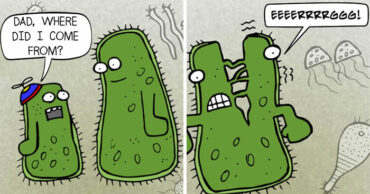There are times in one’s life where it’s acceptable to tell family, partners and friends that you really need them present right now. Going through a difficult birth is one of those. Grief is hard to handle alone, but it can be heartbreaking to realize that even a close family member isn’t capable of taking time to be there for you.
A woman shared her story of going no-contact with her father after going through a stillbirth and him not being mentally present at all. Be warned, this story is about death and grief. We reached out to the person who shared the story via private message and will update the article when she gets back to us.
Sometimes it’s vital to be present for a family member in need

Image credits: DC Studio / freepik (not the actual photo)
So when one woman’s father was too preoccupied with his breakup when her child was stillborn, she cut contact
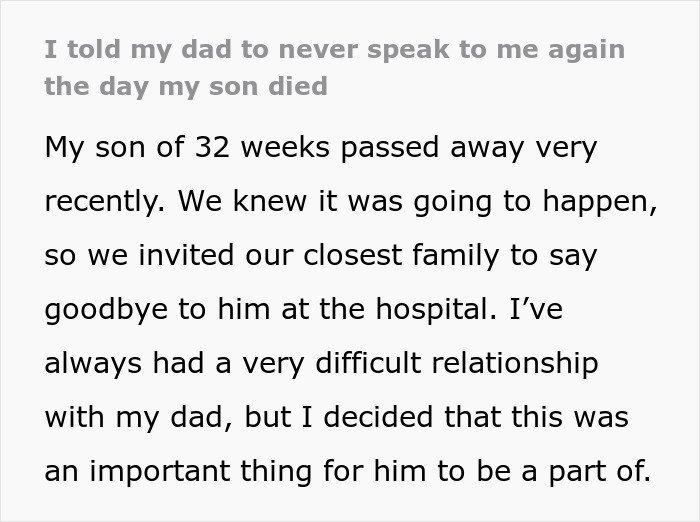

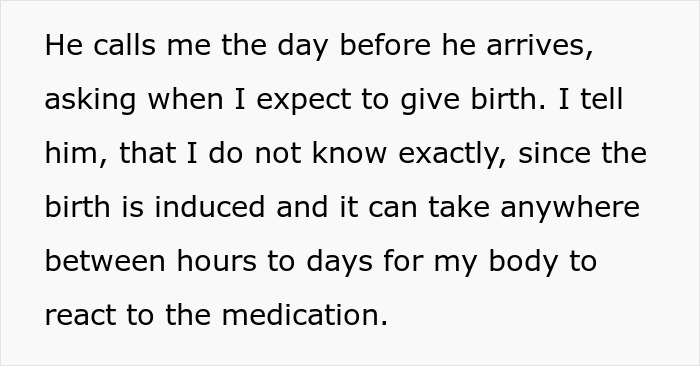

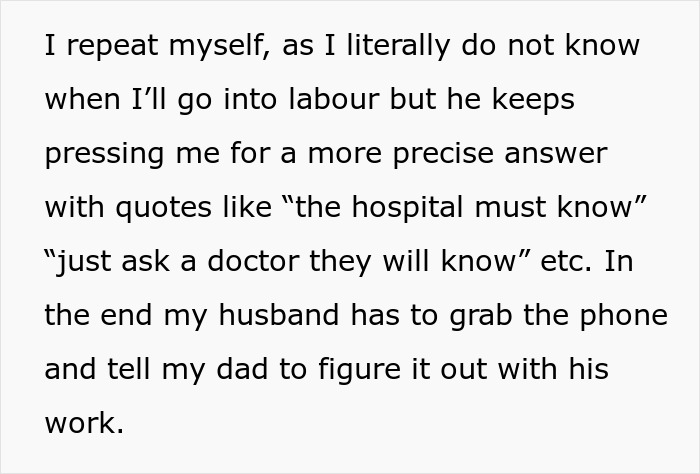

Image credits: Curated Lifestyle / unsplash (not the actual photo)

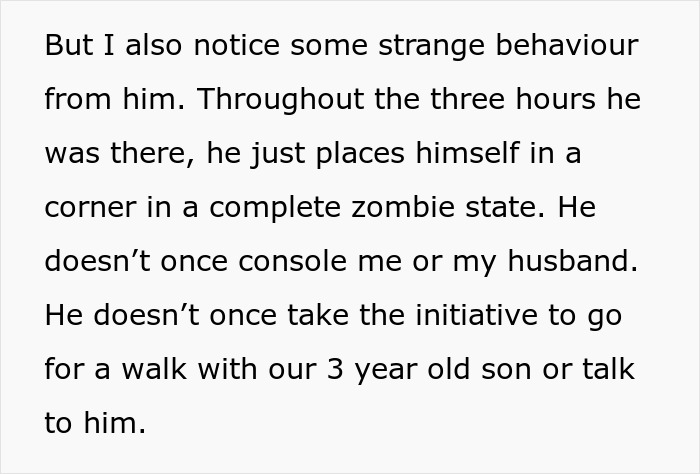

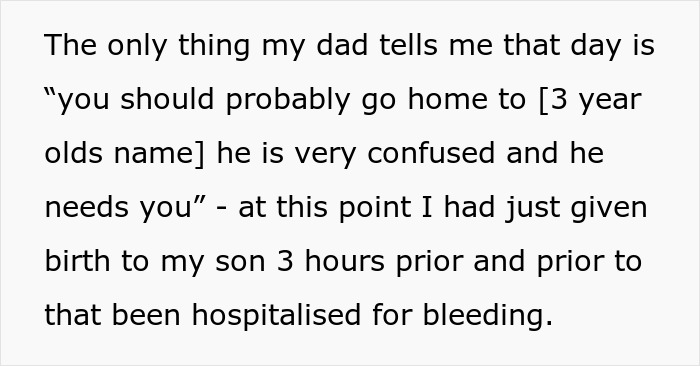


Image credits: Curated Lifestyle / unsplash (not the actual photo)






Image credits: Daniel Martinez / unsplash (not the actual photo)
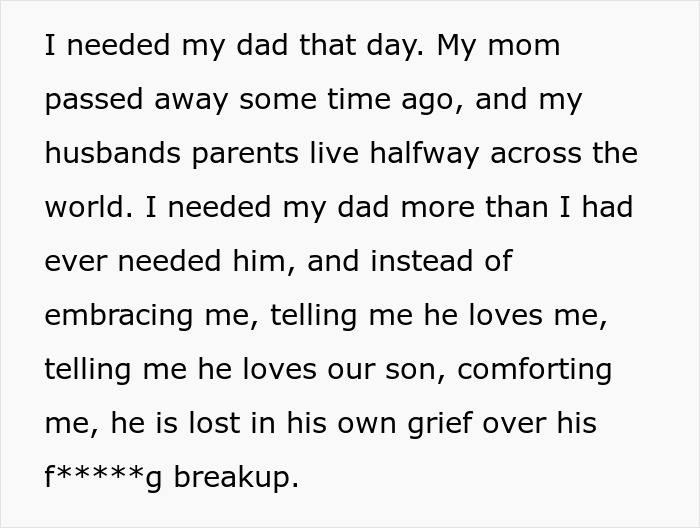
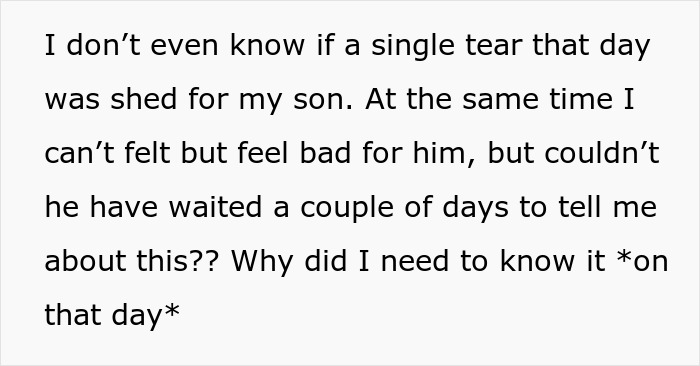

Image credits: kittensandchains
Grief is a complicated process

Image credits: Daniel Martinez / freepik (not the actual photo)
Grieving over the loss of a baby when it occurs at the time of stillbirth is one of the worst things that could happen to a mother. The sorrow is deep, complex, and often unspoken, for stillbirth is not discussed openly. It is not the death of a child but also the death of hopes, dreams, and aspirations of the future. The mother has carried the child, bonded with them, and imagined a future that will never exist. This renders the sorrow difficult to put into words, and because others may not quite understand the loss, it can leave her isolated in her grief.
The emotions that follow are immense. There is sadness, of course, but also often guilt, anger, or shame, even though the mother is innocent. Women are left wondering what they did or didn’t do, whether they did overlook a clue or whether they could have done something to prevent the tragedy. They feel this way about themselves, and they require others to remind them gently. Waves of sorrow hit. Some days can be managed, while other days are overwhelming in their burden, coming as they do unanticipated.
The support of loved ones at this time is paramount. What is most beneficial is not pressure alongside compassion. A grieving mother doesn’t need to hear that it is time to move on or that she can have another one. She needs to hear that her grief is real, that her baby mattered, and that it is okay that she feels the way she does. She needs permission to mourn out loud, to cry, to talk about her baby, to cling to memories in ways appropriate to her. Grief baffles society, especially when it is an infant, but to deny the loss happened only exacerbates. Tracing the anniversary, speaking of the baby’s name, or even acknowledging the loss can be a comfort and a non-judgmental understanding.
Practical support also becomes more important than most realize. Grief is draining, and life doesn’t stop. Serving meals, helping with household chores, or watching other children in the household may give a mother room to grieve without the added responsibility of daily essentials. Professional support is also necessary. Counseling or grief therapy provides a safe space to work through feelings of guilt, trauma, or depression. Parent support groups for individuals who have suffered a stillbirth can help limit the overwhelming sense of isolation by offering a sense of contact with people who truly understand.
But most specialists agree that a grieving person needs support

Image credits: Getty Images / freepik (not the actual photo)
People around her must also be understanding of the routine. There is no time limit to grieve, and reminders about the loss will bring sorrow months or years down the line. A good support system doesn’t measure how long someone has grieved but stands with them as long as they need. Partners and immediate family members are grieving as well, albeit differently. Mutual exposure and honest communication work, but the important thing to realize is the mother’s grief can feel so much more suffocating because her body contained the baby. Her loss is emotional and physical as well, and she may have to get through it on her own time.
Healing from stillbirth is not about forgetting. Healing is finding a way to endure the grief, yet learn to cherish and remember the baby. Some mothers create rituals or memorials, some hold small mementos, and some simply keep the memory humbly in their heart. Time can make the sharpness of the pain duller, but the love does not disappear.
Most crucial, however, is the fact that the mother does not have to walk through this process alone. She needs people who will sit with her in her sorrow, who will listen without judgment, and who can accept that the life of her child holds value. With compassion, understanding, and unconditional support, her loved ones can make her feel more sustained during one of life’s greatest sorrows. Her loss is real, her child accounted for, and she deserves the room and mercy to proceed through this suffering at her own speed.
She answered some reader questions in the comments

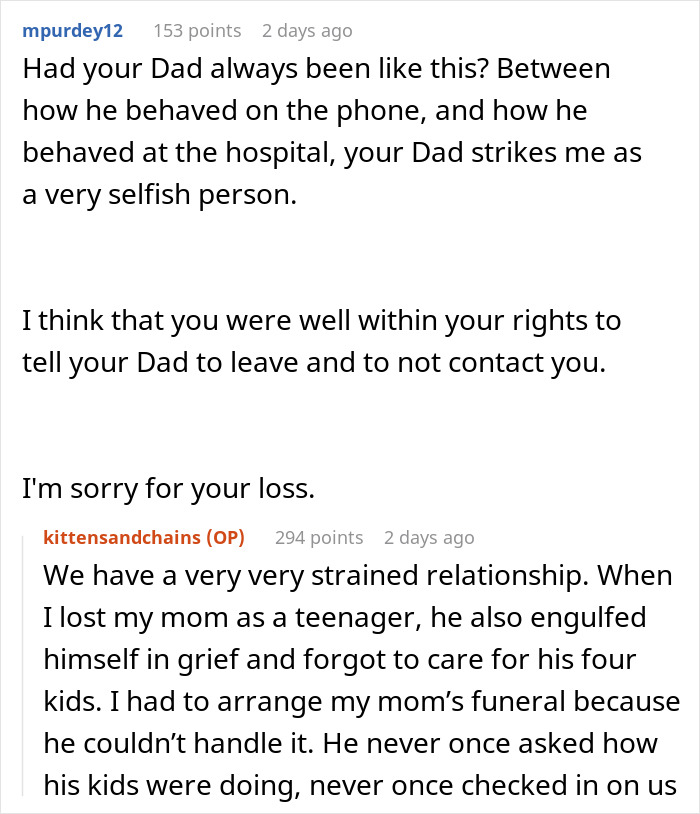
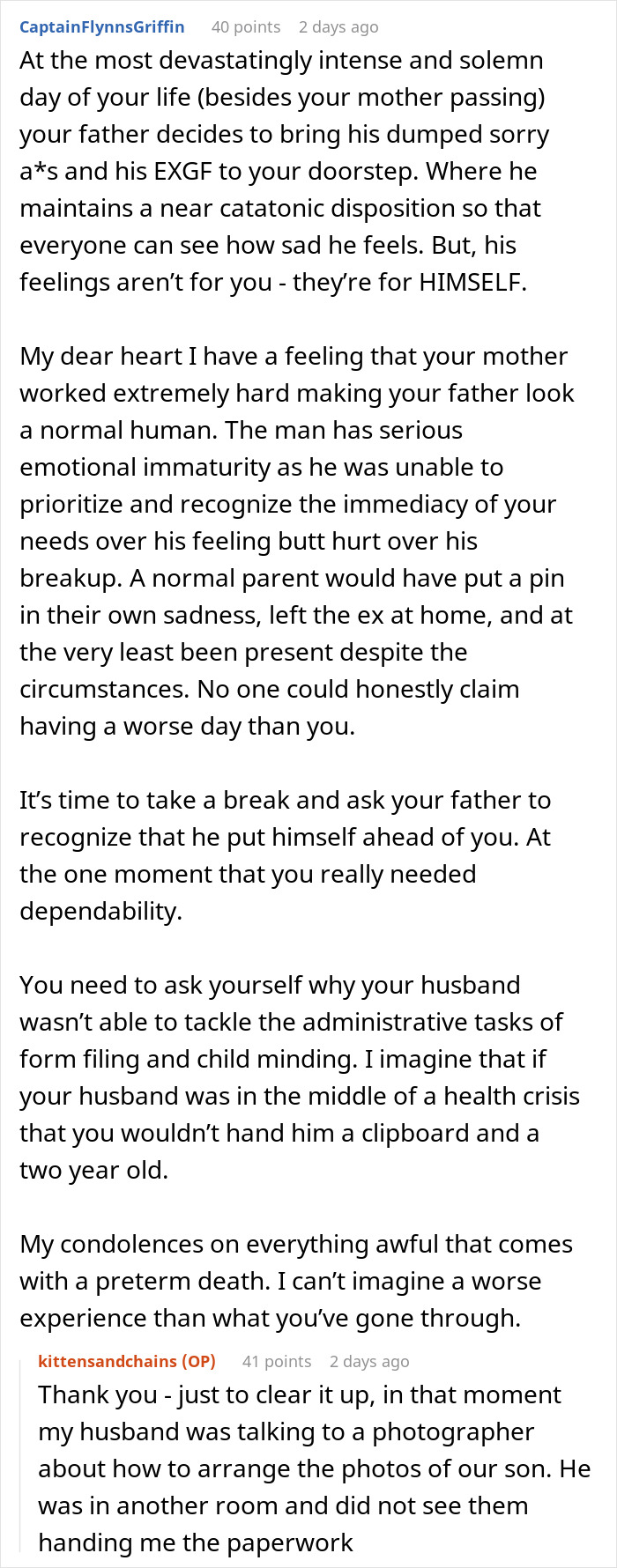
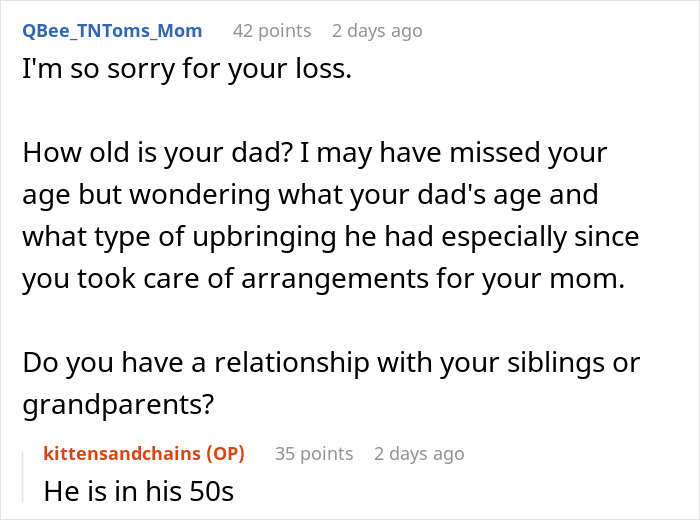
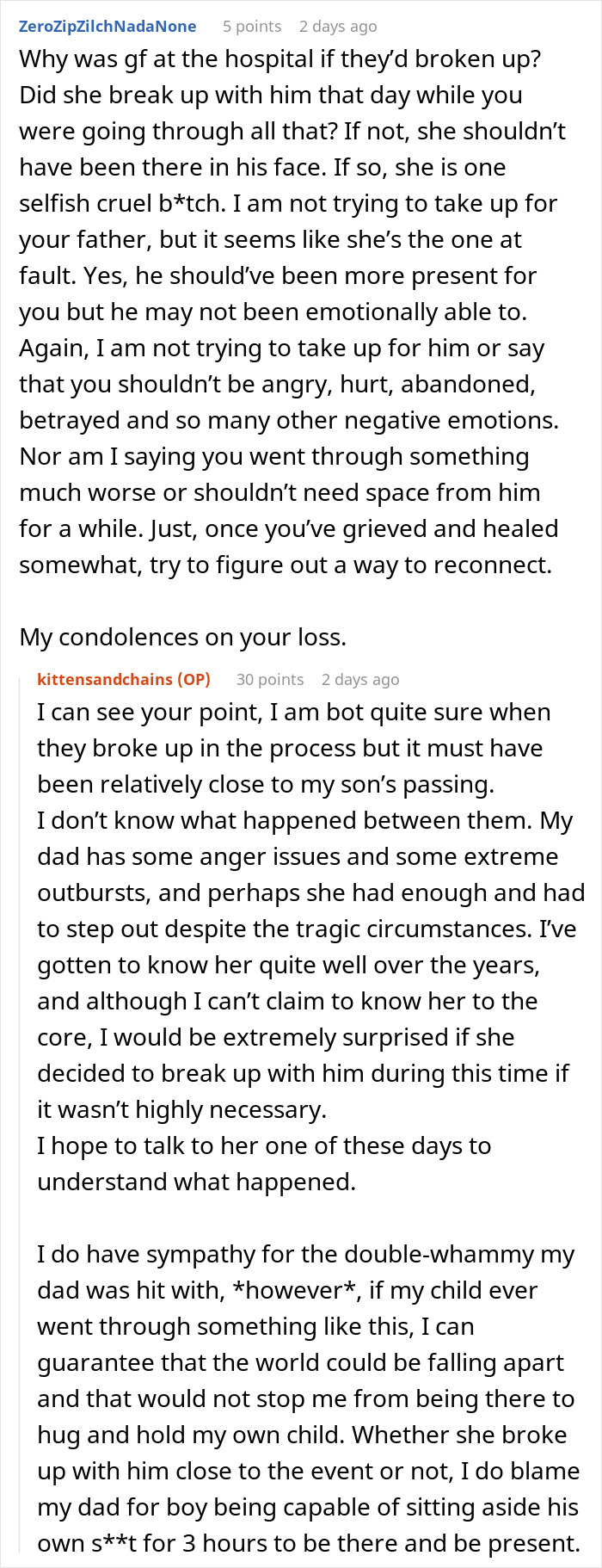
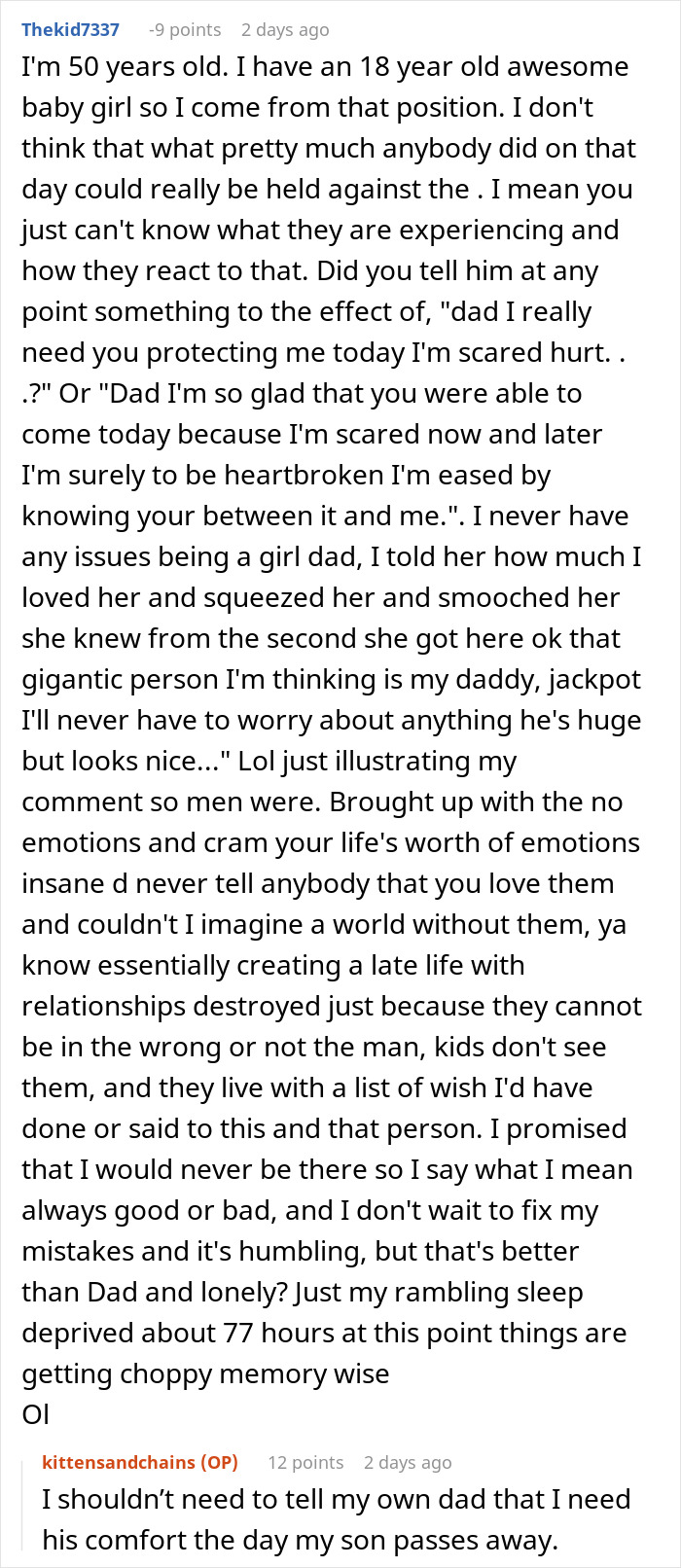
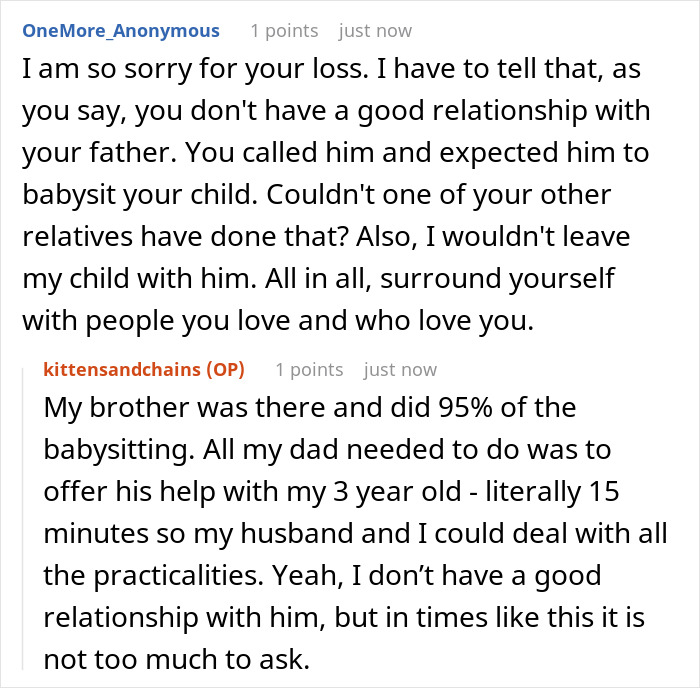
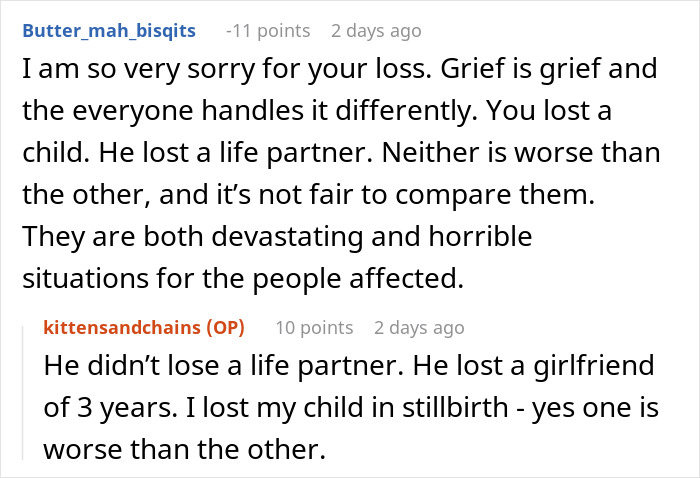
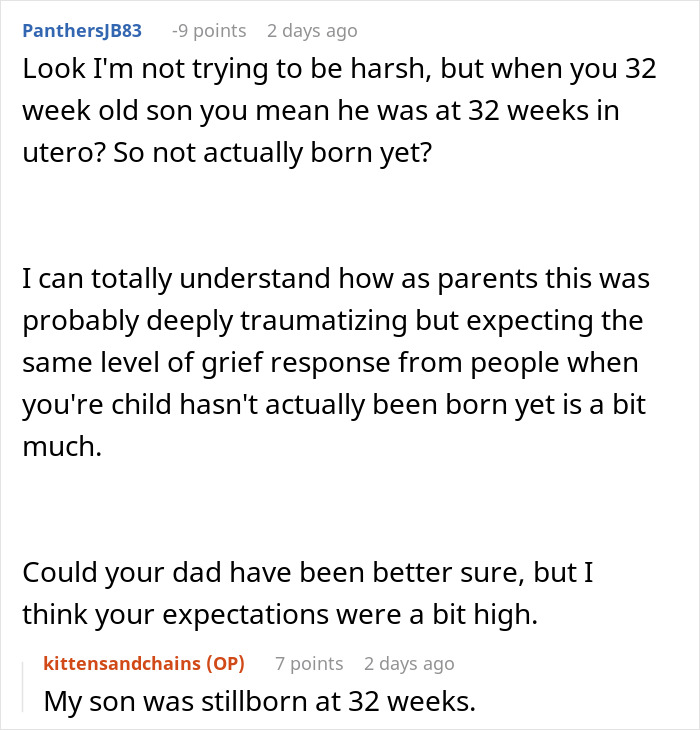
People shared their condolences and surprise at her father’s actions



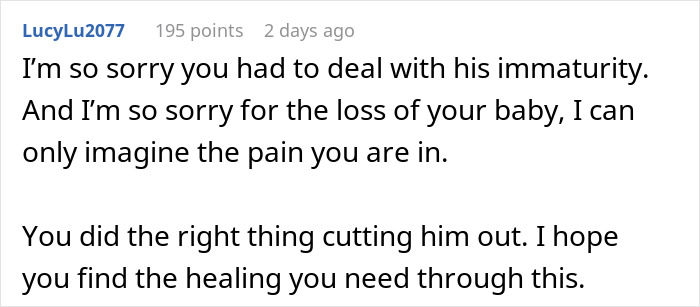
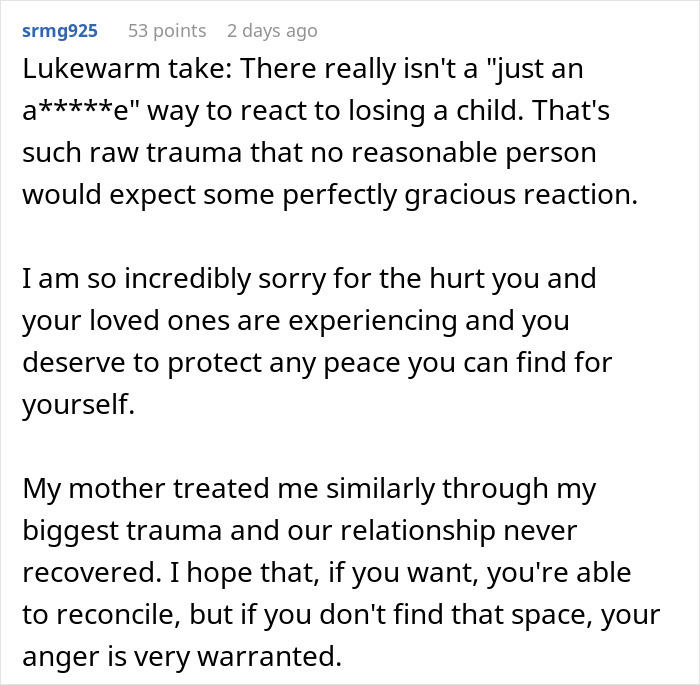

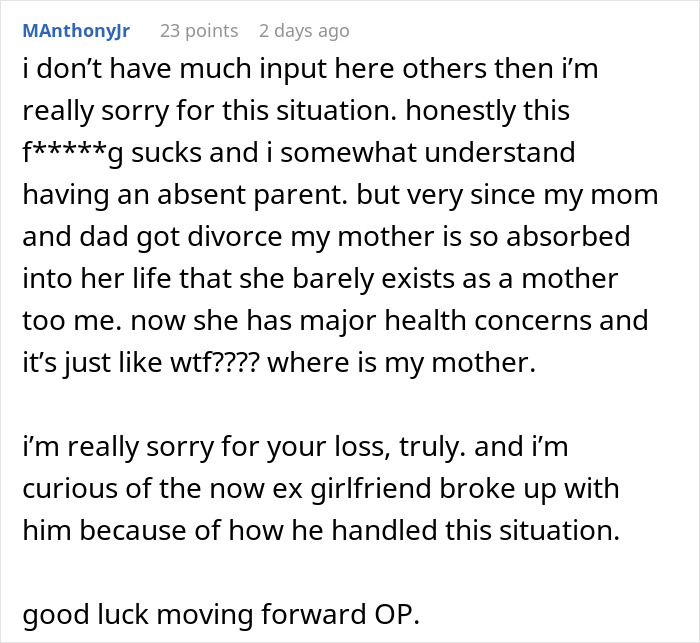

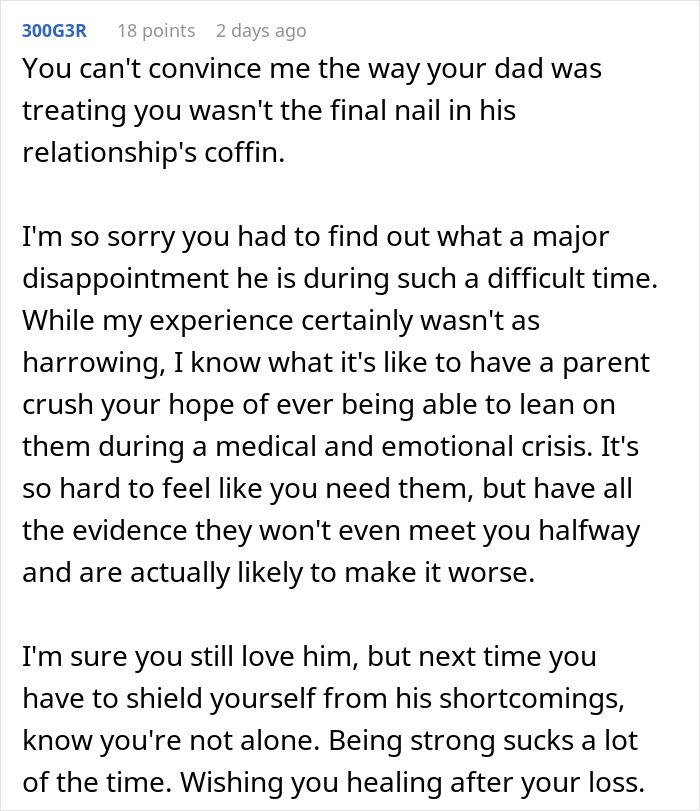
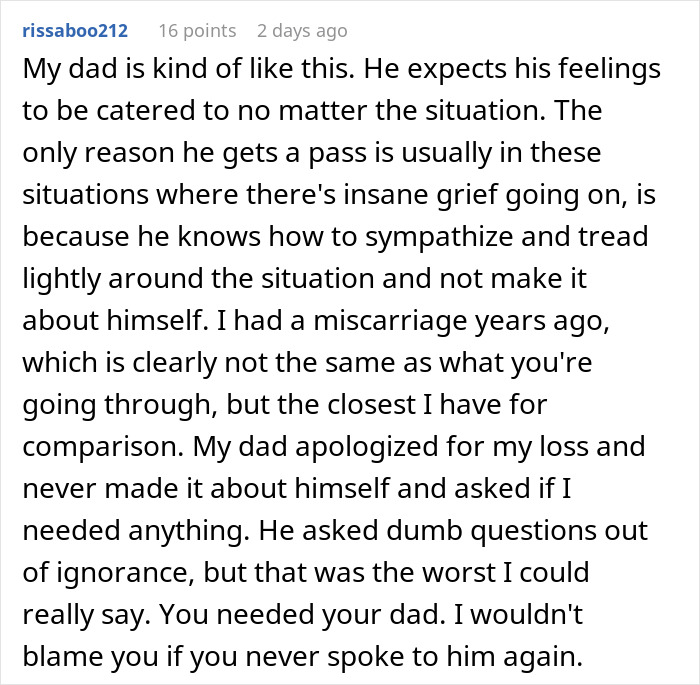
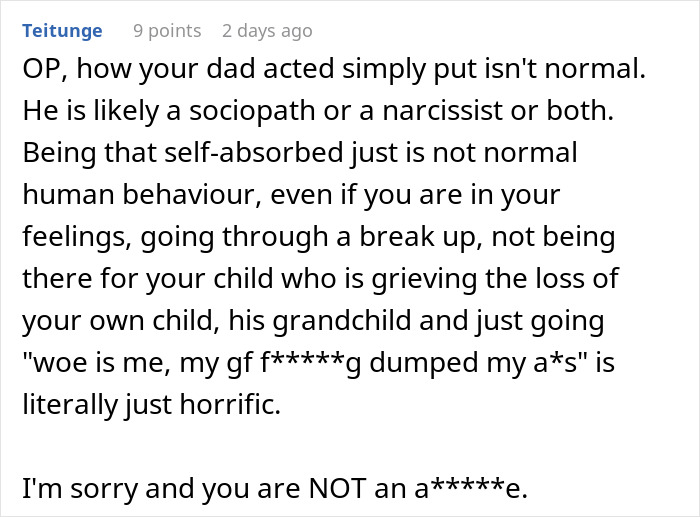
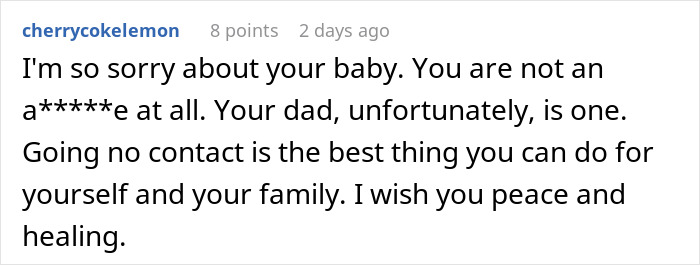
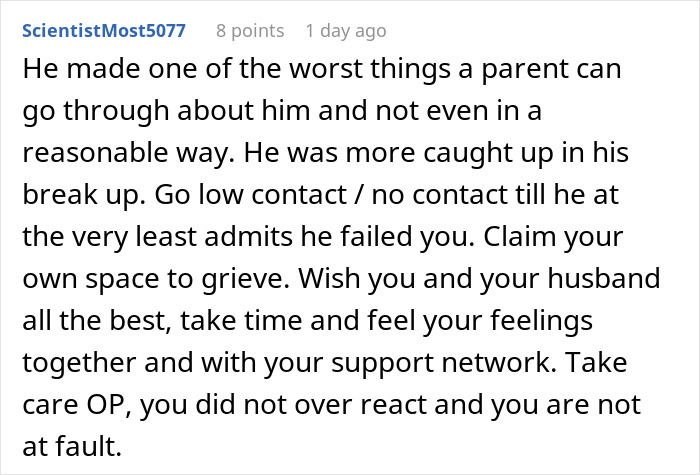
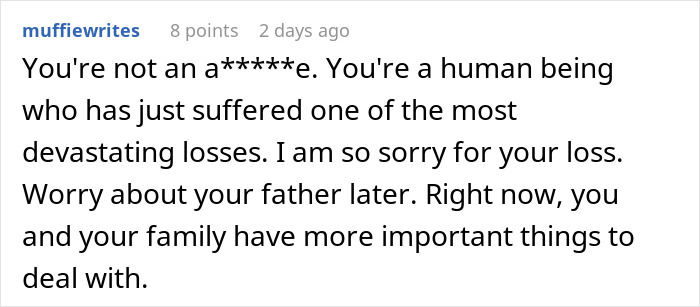

Later she shared an update

Image credits: Getty Images / unsplash (not the actual photo)
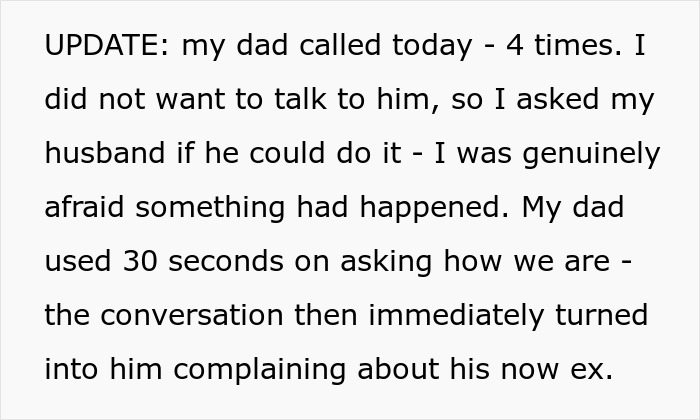

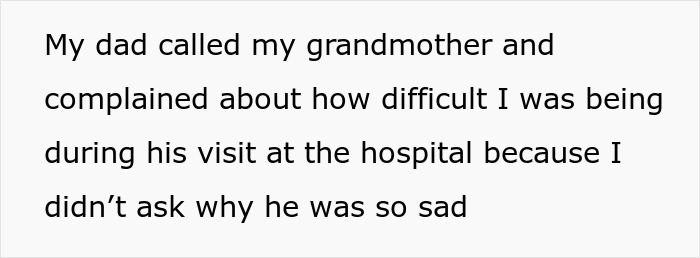

Image credits: kittensandchains
 Follow Us
Follow Us





